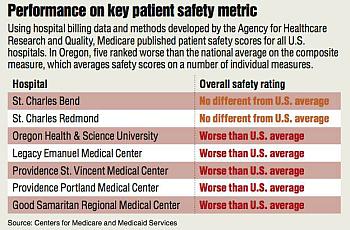
Betsy Cliff
Ph.D. Student

Ph.D. Student
I am currently a Ph.D student at University Michhigan. Prior to that, I had worked as a health reporter at magazines and daily newspapers since 2004. I covered all aspects of health care, and am particularly drawn to cost and quality issues.
<p>Each year thousands of patients are harmed by medical care in Oregon. A Bend woman, Mary Parker, was one.</p>
<p>My experience reporting on health care in Oregon has been mostly positive, particularly with regards to transparency. Public information is typically handed over without fuss, officials are reachable and often willing to talk and the state, at least from my experience, has a generally favorable attitude toward the press. When I started my project on patient safety, I figured I would encounter much the same thing. I was wrong.</p>
<p>Avoidable complications in hospitals kill more patients each year than AIDS, motor vehicle accidents and homicides combined. Why experts say hospitals are not as safe as they should be.</p>

<p>Five prominent Oregon hospitals do worse than the national average on a key measure of patient safety.</p>
Oregon, typically a progressive state, releases much less data about the quality and safety of its hospitals in at least one important database.
<p>While many states make information related to medical care complications public, Oregon does not. That means that the best information about an individual hospital’s quality and safety may be kept from the public.</p>
<p>I've been a health reporter for a number of years and, in the past few have focused increasingly on issues of cost and quality. I am still amazed at how opaque these issues are and how reluctant the medical community is to talk about them. Often, when I ask about quality I'm met with incredulity. How dare I question the medical care provided?</p>